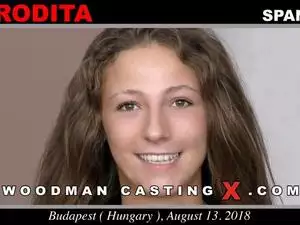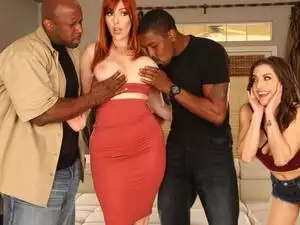Lady Tether and the Three Little Discards
- 2 years ago
- 42
- 0

 3 years ago
3 years ago
Mother Ethel always enjoyed the short walk to the train station. It was beautiful Autumnal morning and Mother Ethel took the opportunity to walk to the train station as she knew that she had a very busy day ahead. Those that saw Mother Ethel along the way bowed reverently,they knew that Mother Ethel was a Nun of the Monastery of Repentance and when a Nun or a Monk walked past it was polite to bow, for many knew what the Nun's and Monk's of the Monastery were capable of. As Mother Ethel strolled...
 2 years ago
2 years ago
SRU: Trading Cards By Morpheus Marshal felt disappointed as he walked out of the arcade. He'd thought for sure that he would have beaten that game this time. Still, after another $3 he only got another level than his last time. And at 13 years old, $3 wasn't something to just be thrown away. Shrugging to himself, he thought, "Better luck next time." Having gotten bored of playing video games for the moment, Marshal started walking through the mall, hoping that the comic shop might...
 2 years ago
2 years ago
Dot, Dorothea, and Dick Chapter One Dear sister: I found this letter among some others, scrolled up and tied with purple ribbon, in a chest belonging to our great grandfather. The name Charles has belonged to several in our family line, but I believe I know the one who received and saved this letter, and kept it preserved for so many years. I believe the letter speaks for itself, so I will now offer it up to you. Dearest Charles: I hope this missive finds you in such good...
 3 years ago
3 years ago
Flo and I have been together for nine years the last seven as husband and wife. Flo is a beautiful blonde, six feet tall and 135 pounds. She has been the love of my life since the instant I laid eyes on her in college. Neither of us had much sexual experience before we met but we learned how to give a great deal of pleasure to each other over the years. The event that I am writing about had its genesis five years ago. At that time Flo and I were saving every penny we could get our hands on to...
 2 years ago
2 years ago
Our Last Day of School. I can’t believe it. This is my last day of school, I thought, not sure how I felt now that the long awaited day was here. Stepping out into the beautiful sunny afternoon, heading toward the group of waiting yellow school buses I breathed a sigh of relief. I was glad school was finished. Throughout High School like a ship at sea, I had plotted my course, studying hard. However, the Scholarship that many felt I had rightfully won had somehow ended up going to one of...
 2 years ago
2 years ago
“What’s wrong? What’s wrong?”Anthea looked up at her mum as she sat down at the dining table. “Nothing is wrong,” Anthea responded watching as her mum hurriedly dried her hands with a tea towel.“Is the baby okay? Are you okay? Is Jack okay?” she asked as her husband came into the room and pulled up a seat at the table.“We’re all fine Mum,” she responded exasperated with her mum’s anxiety. “I have something to tell you.”“Sit down Helen,” her dad snapped. “Give the lass a chance to speak.”Anthea...
 3 years ago
3 years ago
My Golden Summer with Blythe – Part 2 Josh’s childhood dream girl visits him in San Francisco. The Return of Blythe Coming from a small farming community, San Francisco proved to be everything Josh had ever imagined – and then some. He loved the freewheeling atmosphere – the friendliness – in short, he fell in love with the city by the Bay. Because of early retirements, and dedication to his work, he had advanced much quicker than he had ever expected. Arriving at his chic little Apartment...
 3 years ago
3 years ago
I banged this out this morning, read it over this afternoon and here it is. Nothing fancy, just my take on the jusicial system and religious judges. It's All In The Cards The guy was steaming. He opened the box of business cards and screamed, "Is this somebody's idea of a fucking joke?" He dumped the box upside down and the cards cascaded down onto the front counter of Excel Job Printing Shop. The unfortunate young woman behind the counter picked up one of the cards and read. She gasped...
 4 years ago
4 years ago
Dear ISS readers, I m Suresh 35 yrs old living in Delhi. I am a regular reader of this site. The stories here are so erotic that I end up shagging myself to great pleasure. I thought of sharing one of my experiences with u. This happened with me during last August. Well let me start the incident. Please excuse me for any mistakes as I am writing for the first time. I don’t think I should write about or say brag about my stats. I am 5’8 average looking athletic person with normal size dick. Well...
 4 years ago
4 years ago
Uther By Ellie Dauber (c) 2006 Introduction According to the legends of King Arthur, Merlin changed Uther Pendragon into a double for Duke Gorlois, so he could spend the night with Ygraine, the Duke's wife. Ygraine and Gorlois had three daughters: Elaine, Morgause, and Morgan le Faye. During their time together, Ygraine became pregnant with the child who was to become King Arthur. Uther's men killed Gorlois that same night. This is my TG (of course) version of what...
 4 years ago
4 years ago
The slut is naked, fixing Master's lunch with an inflated dildo hanging from her asshole, and her tits tightly bound with needles in each nipple. He sits back in his chair and watches her grimace with every movement. When he arrived, he set a stack of index cards on the table face-down. "There are neither safe words nor limits. When you need me to stop, or you want to cum, eat, drink, piss, anything you want or need, you must first draw a card. Whatever is on that card will be traded in...
 2 years ago
2 years ago
This story is not intended for commercial use and is not to be posted at any other site without the author's permission. This is not suitable reading for minors. Thanks to Kelly Ann Rogers for her editorial assistance, as well as Josie for allowing me to borrow her name. Josie swears she's never lost at cards. Unlucky at Cards -- "It's your deal." He flushed as he handed over the cards. The blood was rushing to his cheeks. From drinking two Brandy Alexanders? Possibly....
 3 years ago
3 years ago
Chapter 11: Althea, the School Girl The infernal screeching of the alarm clock awoke Cal from his reverie. He had been up for about a half-hour, but he had only been lying in bed next to the love of his life. Althea's arms were still clutched about him as he stealthily clicked the snooze button, assuming that it was six o' five in the morning, his usual waking time during the school week. He had been thinking long and hard about the previous two nights. Evan... what have you become? He...
 4 years ago
4 years ago
edited by Master Ken Wednesday, September 4th, 2013 "Hi, I am Miss Blythe," I said to my class, writing my name on the whiteboard with a red dry-erase marker. "I will be your World History teacher." It was the first day of the new school year and, as I launched into the course syllabus, my thoughts kept drifting to that day in June at the end of the last term, when my Living God, the Holy Mark Glassner, walked into this very classroom and changed my very outlook on life. I didn't know...
 3 years ago
3 years ago
The the wind howled around the quayside as I stepped onto terra firma for the first time in weeks, the wind threw sharp shards of ice to sting our faces as we looked up at the sails as they were finally furled and stowed as our captain grinned at our discomfiture, "Au revoir!" he joked as if he knew we should soon be recalled. Those such as were left, and we were few enough, I shuddered. My best uniform packed securely in my Valise, awaited me, and just a few more duties before I...
 2 years ago
2 years ago
As he approached one of the hall's long mirrors he stopped to inspect himself. It was a familiar sight, the flowing, billowy French maid outfit surrounding his body. His arms and legs were outlined in silky, white stockings and arm-gloves. He wore pearl earrings and the lacy white collar around his neck was adorned with a beautiful pendant. It was a gift from mother that he wore every day, without fail. Jon's painted red lips and neatly applied eyeliner and blush were evidence that he was...
 2 years ago
2 years ago
PREFACE:There are no sex acts in the story but the patient does have an orgasm as a result of the Ther****t’s physical examination. Part 1 is the Sex Therapy appointment from the patient’s point of view and part 2 is the same examination seen through the eyes of the Ther****t. I don’t think it matters which one you read first.I hope you enjoy it and will let me know what you think in any...
 2 years ago
2 years ago
Katherine stepped into her elegant living room and took a book from the shelf. She sat in a plush lounge chair, specifically selecting a chair in the back corner of the room next to an old dumbwaiter that was once used to ferry delicious meals from the downstairs kitchen to the dining room table. She planned to read the book for a short while, but she already knew her attention would soon be diverted. Tonight the dumbwaiter would once again be placed into service, except this time it would be...
 2 years ago
2 years ago
Jareth was relieved when he saw the flicker of campfires on the road ahead. It had been a long and tiring day, most of it spent on horseback, and the next day would prove to be just as strenuous. He prayed that the owner of the fires would prove to be a hospitable sort. If they wouldn’t let him stay the night in their camp, at least perhaps they would provide him with a hot meal and a bath before he set out again. Nudging the sides of his mount lightly with his heels, Jareth guided the stallion...
 1 year ago
1 year ago
Do you know of the porn site Motherless.com? You should. I’ve reviewed it a few times on my site, The Porn Dude, although it was for different genres every time. This time around, I’m going back to this place and looking at a specific and niche little category many of you are just begging me to cover. We’re looking at vintage porn today. While it doesn’t have the same resolution and quality as the porn you can find today, it’s definitely a genre of porn that has a lot of personality to it and...
Vintage Porn Sites 3 years ago
3 years ago
I should have known better. I should have remembered that old saying, "If it looks too good to be true, it is." I was in love. She was damned near all I thought about with the exception of my studies and it didn't make sense to me. I prided myself on my intellect and my ability to think logically, but there wasn't anything logical about the way I felt about Althea. She was beautiful, smart and very popular and I was not. I wasn't a bed looking guy, but I was nothing exceptional. I was...
 1 year ago
1 year ago
Motherless. A one-word website title that says everything it needs to say. This is a site where the rules are, more or less, completely thrown out the window, morality means absolutely nothing, and there is nobody to save you from it. Hedonism is God here.The site likely is also called this due to the fact that the girls who end up on motherless.com likely have no positive female influence in their lives to keep them from it. Motherless is the place parents spend their whole lives fearing that...
Porn Pictures Sites 4 years ago
4 years ago
Abbey 'No, ' I thought. Except for the ten minute breaks every two hours, I have been in a constant state of arousal. "Yeah, lets," exclaimed Trish before looking around embarrassingly at the others over her outbreak. "Yeah, lets," echoed Pam. "I'm game," agreed Maggie. The way Pam and Maggie were looking at me, I almost thought they hoped I would say no. Well I am not going to be the party pooper and since they are treating me as a big girl, I will go along. "Yeah," I...
 1 year ago
1 year ago
I always considered Motherless the “4chan” of porn. Not only because Motherless was somewhat popularized there, but because Motherless also encourages users to share their own content in a very open way. This means minimal bullshit like moderation and censorship, and a strong “anything goes” attitude that leads to free and extreme content. It encourages people to create and upload their own homegrown content, like videos of their girlfriend pissing or spycam videos of their cousin....
Amateur Porn Sites 1 year ago
1 year ago
What is it about Motherless that makes me fucking cum every time? Maybe it is how raw and amateur the porn on the site comes across as, or the content is just that fucking hot. Perhaps it is the fact that there is an astronomical amount of pornography just waiting for a dumb fuck like you to beat off to! I really don’t know, and frankly, I’m not going to pretend that I do.But what I do know is that if you love BBWs, the Motherless.com homepage will not be of much use! Preferably, head on over...
BBW Porn Sites 1 year ago
1 year ago
Have you ever heard about a website called Motherless? Home to all kinds of kinky porn niches, with a side of the mainstream crap? If you are into some questionable fap content, you might want to check this website out. Plus, Motherless is a free porn website, so you can browse as much as you fucking want. Now, I am not really here to talk about the website in general… I am here to tell you about their amazing category, called voyeur porn.The world of voyeur fucking is a rather interesting one....
Voyeur Porn Sites 2 years ago
2 years ago
He'd met these three women at a bar. They were lovely, friendly, open-minded and even seemed to be into one another with that mild lesbianism that seems to come from so many women once they'd had a few drinks.. They'd all sat around at the table sharing those drinks and eventually planning to all head back to one of the girls' house together. From the get-go, his mind was anticipating the ultimate male fantasy - to have a threesome, or in this case, a foursome with some real...
 2 years ago
2 years ago
Clothesline[This story is part of the Leather in Lawnville series.] Clothesline By DuskPetersonYou can tell a lot about a guy from where he shops. Take my friends, who have specialized tastes. Some of them spend their time at the hardware store, while others take an interest in our town's fabric shop, which has needles and pins that make them drool. Still others hang out at the department store, eyeing the cutlery collection. Somehow all of us end up rubbing shoulders at the town's jacket...
 3 years ago
3 years ago
The Five Kingdoms of Arstoria had been embroiled in the Great Ancient War for centuries. The war came to an end when Kalace, the Wizard King conquered the five lands and brought them under his rule. Kalace, the Wizard King of Arstoria, conquered all of his opponents who were unable to deal with his overpowering magic. When Kalace had united the five kingdoms, he brought peace to the warring kingdoms and was revered and celebrated by his later generation. Kalace, however, had a dark weakness in...
Fantasy 1 year ago
1 year ago
Woah, did Motherless.com get a facelift? I know I suggested it in my review, so I guess they listened to me! Well, I’m not going to brag too much about it, and instead, I’m going to focus on what I’ve set out to bring you today. We’re looking at an amateur website, and I just know that many of you are begging for amateur creampie content, so that’s what we’re looking at. I know how much you think Motherless can look sickening and pretty gruesome at times, but the creampie content can be quite...
Creampie Porn Sites 1 year ago
1 year ago
No matter what type of porn you may be in the market for, Motherless has an ample supply of it, and cucking is no different. Actually, this might help to explain how you ended up being such a pussy little cuck.The journey that brought you to my website reading cuck porn reviews started in your childhood. A fair portion of my readership is actually motherless. Why, you ask? Your guys' moms chose a life of cucking and riding cock instead of raising you fucks properly.Don't worry, gents. I'm in...
Cuckold Porn Sites 1 year ago
1 year ago
I browsed the horror stash at Motherless all morning, and now I don’t know if I should jack off or go hide in the closet until the danger has passed. Then again, hiding out might give me the perfect opportunity to rub one out in the peace and safety of the dark. Who knows who—or what—might be peeping in the windows with nefarious intent if I sit at my desk and shake my dick at the screen. Just like when I masturbate at the local Starbucks, I’ve got to be sure to balance the potential pleasure...
Extreme Porn Websites 4 years ago
4 years ago
Cards By Owl "I'm bored." Raven sat around looking at the other five master wizards. "We need to do something interesting." He waited to see what their response would be. "What do you have in mind?" said Telnor, eldest of the group. The others, having deferred for his question, now waited for Raven's response. "I propose a card game," said Raven, "with high stakes." He smiled grimly at the others. "We can all have anything that we want and...
 3 years ago
3 years ago
Rick knocked on the apartment door and was admitted by Roger. "Ricky mon ami, come in. We have ze snacks already out. Come and sit." Roger led him toward the sofa where a woman with curly, black hair sat. She wore a short, lavender dress cut low to display her ample cleavage. "Zis is Miriam," Roger said. "Miriam, zis is ze Rick I told you about. Miriam is administrative assistant to ze dean of ze Economics department. Ricky I know you have ze perks from your ass occupying ze coveted...
 1 year ago
1 year ago
Incest porn has been a staple of pornography since the very first incel caveman realized that he couldn’t find fresh pussy out and about. He resorted to sniffing a whiff of his mother’s loincloth when she wasn’t looking, and beating his old cave meat into a leather sock.Now personally I’m not into the whole mommy-son dynamic – I’m a classy guy. But it’s no secret people like to get freaky when the lights go out, and if you’ve got a stiffy in your hand and you’re on Motherless, you gotta go...
Incest Porn Sites 4 years ago
4 years ago
Hi friends, indru tamil kama kathaiyil en sontha thangaiyai epadi oothen endra kudumba tamil kama kathaiyai ungal idam pagirugiren. Vaarungal tamil kama kathaikul selalam, en peyar prathap vayathu 28 aagugirathu. Enaku oru thangi irukiraal aval peyar mala vayathu 26 aagugirathu, avaluku innum thirumanam seiya vilai Avaluku thirumanam seithu vaikum alavirku engal idam ipozhuthu panam ilai, loan apply seithu atharkaaga kathukondu irukirom. Naan oru kama veriyan eppozhuthu pen kidaikum avargalai...
 4 years ago
4 years ago
"Yeah, I understand what a virus is. What I don't get is how I got it." "You know that little red "M" that comes up on the bottom of your screen, the one that means McAfee, as in McAfee anti-virus protection. The one that..." "The one that's supposed to stop this crap from screwing up my computer so I don't have to be standing here having this conversation with you, that one?" The kid grinned up at me with nicotine-yellowed teeth, twenty years old tops, fucking spider-web tattoo...
 2 years ago
2 years ago
My name is Rebecca. Everyone calls me Becca. I entered the police department right out of college. I progressed rapidly, through different divisions and assignments. I always had my eyes set on Robbery-Homicide and after six years of hard word and dedication, I finally made it. At age thirty, I was youngest female in the division for such a coveted assignment, but I was superb at my job. I made it because of my skill not my gender. It was Saturday. Dispatch called our number just after we had...
Taboo 3 years ago
3 years ago
Thanks to my usual cast and crew of Editors and Advance Readers, most of whom prefer to pretend that they don’t know me and wisely wish to take no responsibility for any part of my addled writings... Il n’est rien de réel que le rêve et l’amour - Nothing is real but dreams and love (from Le Coeur innombrable, IV, Chanson du temps opportun by Anna de Noailles) She was my one true mistress and ever faithful lover, my Green Lady and guardian of my dreams and now that I was back home...
 4 years ago
4 years ago
Hi friends, indru kathaiyil en nanbanai kathal seithu emathiriya pennai ootha kathaiyai ungal idam pagirugiren. En tamil kathaiyai inaiya thalathil pathivu seithatharku nandri, en peyar pradeep vayathu 21 aagugirathu. En nanbanai oru pen kathal seithu matter mudinthathum kayati vitu vitaal, athanaal naan avalai usar seithu hardcore seiyanum endru mudithu seithen. En nanban enaku nanban endru kanbithukolamal aval idam muthal muthalil pesi pazhaga aarambithen. Aval pathini pola en idam nadika...
 3 years ago
3 years ago
Hi friends, indru tamil kama kathaiyil en kanavanuku theriyamal ilamaiyaana kaal kathalanai eppadi love seithen endra kathaiyai ungal idam pagirugiren. Vaarungal tamil kama kathaikul selalam, enathu peyar jaya vayathu 36 agugirathu. Enaku thirumanam aagi oru paiyan irukiraan pinbu en kanavanuku vayathu 42 agugirathu. Naan santhoshamaaga thaan vaazhnthu vanthukondu irunthen, naan oru teacheraaga velai paarthu varugiren. Naan velai seiyum classku arugil oru veedu irukirathu, antha veetil oru...
 3 years ago
3 years ago
Every month me and Francine, my wife spend a night playing cards with my friend Connie and her husband Tim. While playing Canasta we saw on TV that here was a major fire on the other side of town. Since Tim is a fireman he was called to work. At the same time my wife who was a police woman was called to work also. This sadly interrupted our monthly game. Both Tim and Francine left together since the fire station and police station are in the block.As we heard the car leaving. I look at my...
 2 years ago
2 years ago
My name is Anthony and I am twenty-two years old. I have extra-long dark hair and darker eyes. I tie my hair into a ponytail and have a close trimmed beard. I look handsome and enjoy keeping myself in shape. I am a lucky guy as I have a very sexy girlfriend who is two years older than me. Zoe and I met at a mutual friend’s party and hit it off right away. She has short blonde hair and blue eyes. Her small beautiful mouth sits beneath a cute button nose. All in all, Zoe is a goddess and I love...
Crossdressing 4 years ago
4 years ago
Hi friends, indru sex kathaiyil auntyai usar seithu eppadi matter adithen enbathai ungalidam pagirugiren. En peyar Seenu. Vayathu 21 aagugirathu. Naan ithu naal varai entha penaiyum sex seithathu kidaiyaathu. Naan engineering padithu varugiren, enathu nanbargal oru naal theaterku ennai azhaithaargal. Naangal neraga bar seithu saraku adithom, appozhuthu bagubali padam oodi kondu irunthathu. Naangal oru gramathil irukum theaterku sendru irunthom. Angu pothuvaga pengal athigam vara matargal,...
 3 years ago
3 years ago
Yes I hate the Cards ! It was suposstobe the Packs year to go to the big game ,but NOOO. The Cards pull off a lucky play and end up winning and I lose a bet to my GF Melisa ! We me at a bar during last years Super Bowel game . I was playing pool by my self when she walked in and asked why I wasn’t watching the game ? I told her I didn’t care who won, my Packers got screwed in the play offs, lost in OT and never got a chance to play! She told me the Cards got beat by a bad call. We talked and...
 4 years ago
4 years ago
Yes I hate the Cards ! It was suposstobe the Packs year to go to the big game ,but NOOO. The Cards pull off a lucky play and end up winning and I lose a bet to my GF Melisa ! We me at a bar during last years SuperBowel game . I was playing pool by my self when she walked in and asked why I wasn't watching the game ? I told her I didn't care who won, my Packers got screwed in the play offs, lost in OT and never got a chance to play! She told me the Cards got beat by a bad call. We...
 3 years ago
3 years ago
When the car with Jake in it became a dot on the horizon, Thea turned to go back in the house. Suddenly Floyd appeared. “Mrs. Thea, how you be?” Smiling, she knew immediately what he wanted. He had that look and a glance at his crotch confirmed it. The imprint of his cock was prominent as it pushed against the material. “Looks like everyone is gone.” Floyd said. His eyes looking out over the farm. “Yes, I am by myself for at least the next few days.” She replied in an...
 4 years ago
4 years ago
Mirror Site: A new hand of cards By Yurix "I lost..." Sebastian wasn't pleased at all. It wasn't the fact that he was a poor loser, which wasn't the case, but he had a terrible tendency to take every small mistake as a big one, and every big one as a disaster. His mind clouded by the thoughts of his last loss, which was that of his job, made him unable to concentrate. The game he was playing wasn't in a casino. It wasn't even a gambler's game. He was playing Duel Monsters, which...
 3 years ago
3 years ago
“Well, hell,” Thea said as she wiped the beads of perspiration from her face. “I guess ‘spring’ is here, huh?” “Yeah. It’s supposed to be cooler at higher elevation,” I replied. We took a few minutes in the shade by the rocks before rejoining our boyfriends. The four of us had driven up into the pass to hike. According to the weather report, the last coolness of a fading winter was supposed to continue through mid-week, but they were wrong. Actually, from our view from Eagle Point, where we’d...
 1 year ago
1 year ago
Motherless.com! What an original name for a porn site, don't you think? The title doesn't fuck around: your mother would never allow you to watch the kind of filth they’ve got on tap. They pride themselves on being a moral-free zone for sick fucks, where you can find damn near anything. I’m talking about desperate chicks fucking anything that resembles a dick and crazy bitches literally eating shit. When you’re done fapping to the weird vids, you can even find "normal" porno to pass the time....
Free Porn Tube Sites 1 year ago
1 year ago
Ah, motherless, here we are again. A site known for offering such a variety, that no matter how fucked up your needs are, there is a high chance that you will fulfill them here. However, I am not here to blab about the site in general; I am here to talk about one particular category, interracial. As for those who want to know more about the site, there is a whole different review on my website instead.As for those who came here to learn more about that interracial lovemaking, I got your back....
Interracial Porn Sites 3 years ago
3 years ago
Therese looked at the scene before her. Her father and brother naked, her grandfather’s cock sticking out of his trousers and her grandmother eating her mother’s cunt, both of us naked. Beth with the camera, filming. “God, the slut is only in the door and she’s gone sex mad.” she said referring to me. She went and sat on the arm of her father’s chair putting her arm around him and kissing him on the cheek. My father was now hard again. He pushed my mother out of the way and started to fuck me...
 3 years ago
3 years ago
How Burt got into gambling could be contributed to a number of factors. His father and grandfather were ex-soldiers and had played two up while overseas and on return were frequent race goers and contributors to the bookies takings, sometimes coming home with a sizeable win, but more frequently coming home minus their shirts. Burt got the thrill of the chase as one might say from his male relatives and at school put bets on any items, whether it was what team would win the interschool football...
 3 years ago
3 years ago
Three months later, the sound of laughter made Thea Barton look up. The now twenty year -old blond-headed beauty was in the living room reading when she heard it. Recognizing the voice of Uncle Dan, she smiled as she waited to see whom he was going to be with. When the laughter grew louder, she smiled. Ah, yes! It was Irene, her now very good friend! Uncle Dan seemed to prefer her to the others. Her being married seemed to make no difference to all concerned parties. Thea smiled to herself,...
 2 years ago
2 years ago
This week’s show begins with that same old rusty bedstead, and that same old dirty mattress. Pausing to take in the magnificent filthiness of it, then pulling back to reveal the bare concrete floor around it, and to take in the harsh lighting. And then we hear our guest of the week approaching, quick little footsteps ... Light clicks on the studio floor. We pan round to see what we’ve got this week and see a slight, pale, small-boobed lady walking in quick, short strides ... She’s not is a...
 2 years ago
2 years ago
Hi, guys. It’s been a long time on ISS. I was away from the city. I hope you did like my other two stories(true incidents) which I had written. This is the next encounter I had with my aunt who was all alone and needed a little love for her. Her name is Bethesda and lived her whole life alone after her husband married another woman. I do have a lust for her and want her so badly. She is 45 years old and looks bomb. She got a good voluptuous body and looks like a brunette. As for me, I’m six...
Incest 3 years ago
3 years ago
My name is Anthony; I am twenty-two years old and live with my beautiful girlfriend Zoe. As you have read I have dark hair and dark eyes and I am clean shaven. Zoe is older than I am by a couple of years and is the driving force of our relationship. I am what many call a cross-dresser: a guy that gets great sexual satisfaction from dressing in women’s clothing.Of course, my girlfriend knows all about my cross-dressing. In fact, she encourages me to cross-dress. Once a week, generally on a...
Toys 2 years ago
2 years ago
Theo had been changing into the squirrel too much, he knew that now... as a pulse of heat raced through his body from his groin. He realized that he shouldn't have come to the office.He had been spending most of his days at the squirrel in his home deep in the countryside. Teleworking most of the time, as the squirrel he felt no need for clothes, his heavy furred balls resting between his thighs as his paws raced over the keyboard. The sharp claws on his paws clattering loudly as he typed,...
Fantasy & Sci-Fi